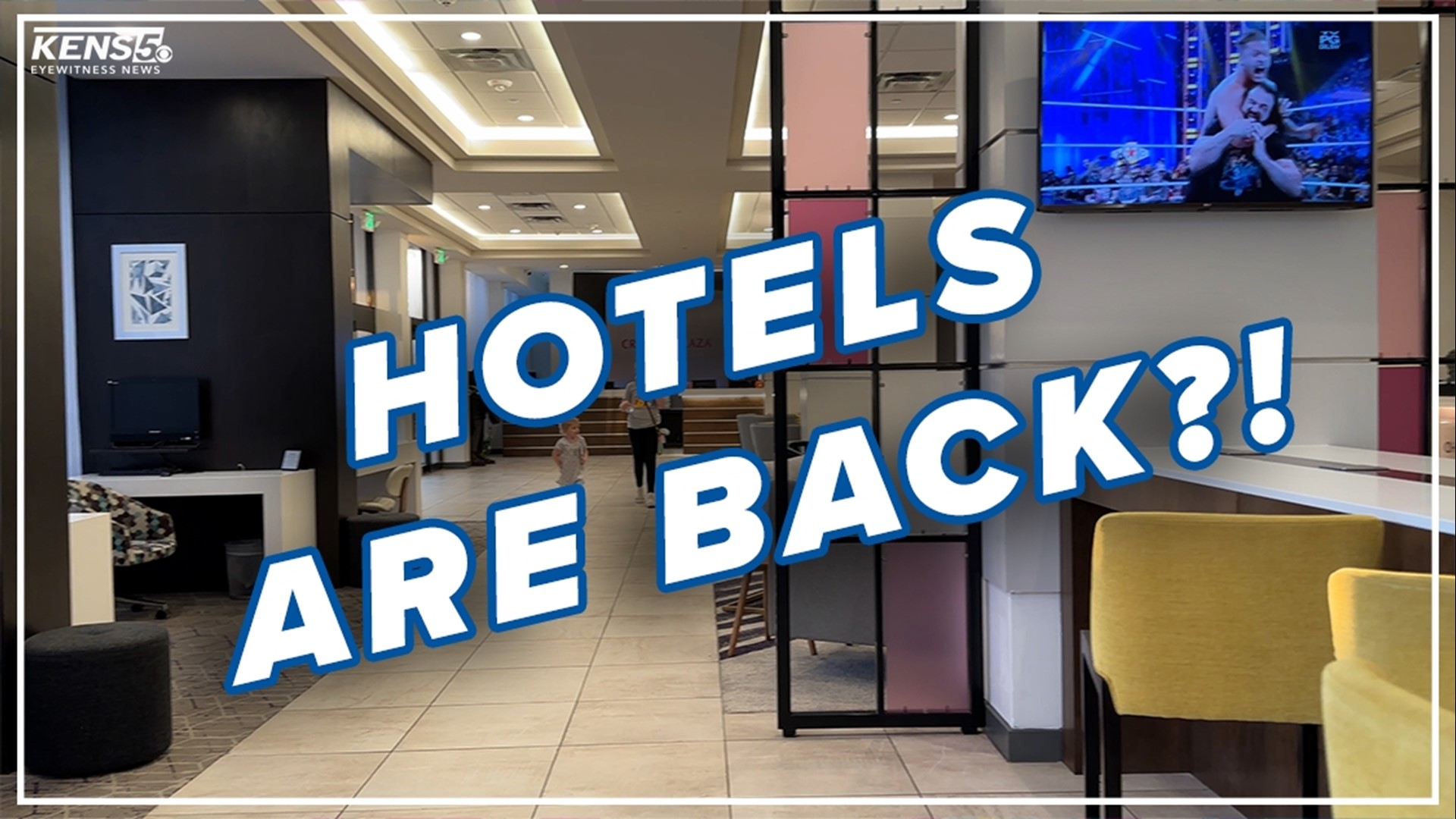SAN ANTONIO — You may not have stayed at the Crowne Plaza hotel near the San Antonio airport, but chances are you recognize the iconic towering building along Loop 410 at Nacogdoches.
The Crowne Plaza was built in 1977 and invokes a golden era of prosperous times and travel. The building went through a huge renovation at the end of 2019, which was conspicuously just a few months before the pandemic ground travel to a halt. It has taken years for the travel industry to recover from such a massive hit.
We spoke with Chris Green, Divisional President with Remington Hotel, which recently took over management of the property. He spoke about the company's hopes for this iconic hotel and how the hotel industry's recovery is going.
See Green's interview below: (article continues underneath).
Remington Hotel manages many of the major hotel brands you are used to, including Marriott, Hilton, and Intercontinental Hotel Groups or IHG, which includes the Crowne Plaza.
The hotel was acquired by a new owner in September, who reached out to Remington for management services.
Green says the future is bright for this hotel despite the unfortunate timing of the pandemic.
"The hotel went through an $11 million renovation at the end of 2019. And the hotel is in beautiful shape," Green said. "So unfortunately, we all know what happened right after the end of 2019."
Green said he hopes it can be restored to its former glory.
"We're looking at what exactly needs to be done to make that hotel the premier hotel that it used to be. You know, being so close in proximity to U.T., San Antonio and Randolph Air Force Base," Green said. "Just like we do in other markets, we want to be part of the community, immerse ourselves in the community, and understand what the community wants from its hotel."
Remington operates 18 hotels across Texas and Green says the company understands what makes Texas and especially San Antonio unique.
"I think San Antonio is a city on the move. I mean, you can there's there's recent reviews about San Antonio being one of the 25 most underrated travel destinations," Green said.
He wants the hotels they operate to reflect the vibrance and culture of the cities they reside.
"As hoteliers and hospitality operators, we need to tell those stories because tourism is really one of the pieces of the fabric that brings the city together," Green said. "So our goal is to create an environment where people want to travel and have a safe place and comfortable place to travel."
The pandemic had a huge affect, not only on this property and the hotel industry, but also changed the way people approach travel and tourism. Green says he has seen enduring changes in the travel industry as a result of COVID-19.
"We're seeing a lot more people traveling Thursday through Sunday and/or extending weekends and doing business while they're on the road, blending business and leisure."
It presents an interesting opportunity for hotel operators, especially in the context of other economic factors:
"Hotels are busy and I think this is the first time in my lifetime we're going to see a potential of a slight recession with hotel demand growing because demand is back." Green said. "It's actually above 2019 levels and on a nominal level, we've reached operational revenue levels equal to 2019. Now on an inflation adjusted level, we're not quite there yet. We're still down about 7%."

